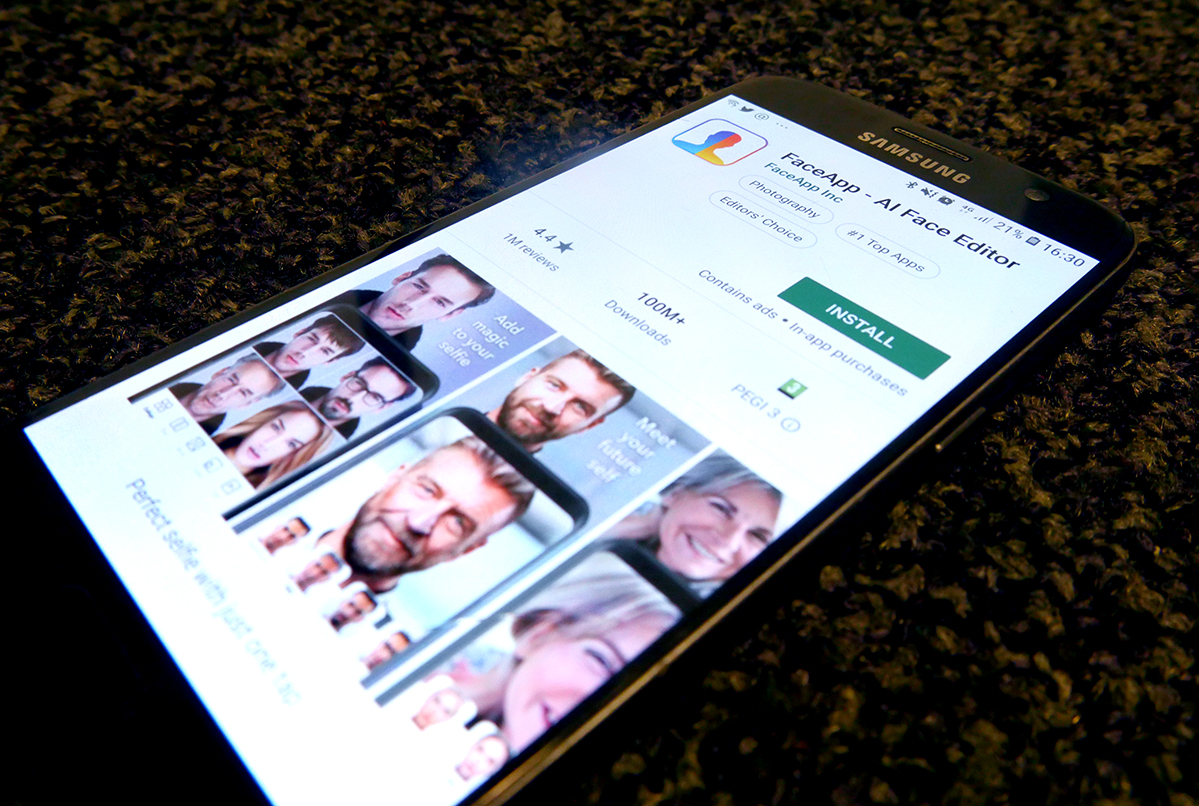The Information Commissioner’s Office (ICO) is considering allegations that personal data is being exploited by viral selfie-editing platform FaceApp – which allows users to see what they may look like in 50 years’ time.
Hundreds of celebrities, including Will Smith and Miley Cyrus, have in the last few days shared digitally-altered images of themselves – displaying grey hair, wrinkles and sun damage – in the name of the #faceappchallenge.
But politicians, security experts and privacy activists, among others, have raised concerns that the app’s terms of use and privacy policy are liable to potential manipulation and misuse by the Russia-based company.
“We are aware of stories raising concerns about FaceApp and will be considering them,” said an ICO spokesperson. “We would advise people signing up to any app to check what will happen to their personal information and not to provide any personal details until they are clear about how they will be used.”
Should We Be Worried About FaceApp?
By accepting the app’s terms and conditions, users grant the company “a perpetual, irrevocable, nonexclusive, royalty-free, worldwide, fully-paid, transferable sub-licensable license” to use or publish the content they upload.
The app can also track a user’s location, which websites they visit and, by applying filters to people’s photos, can create a detailed biometric map of their face which can be “as unique to them as their fingerprint or DNA”, according to charity Privacy International.
The charity argues that alarm about the app is justified, albeit the concerns are not unique to FaceApp.
“It is not clear how FaceApp stores, uses, or manipulates peoples’ data, including the detailed biometric maps of their faces, and this could change over time as profit incentives and technologies change,” it writes.
“Even if you delete FaceApp, there is nothing in the terms of use that governs what the company will do with all the data they have collected about you.”
What Does FaceApp Have To Say About It?
View this post on Instagram
FaceApp’s Chief Executive Yaroslav Goncharov has strongly denied storing the photo libraries of users without their permission and told the Guardian it did not sell or share any user data with third parties.
“FaceApp performs most of the photo processing in the cloud,” Goncharov said. “We only upload a photo selected by a user for editing. We never transfer any other images from the phone to the cloud.”
He added that most images are deleted from the company’s servers within 48 hours from the upload date and that it accepts requests from users to remove all their data from its servers.
RightsInfo has approached FaceApp for further comment.
Want to learn more?
- Take a look at our infographic poster on your right to privacy.
- Read about how technology affects you and your rights.
- View our other privacy resources.







